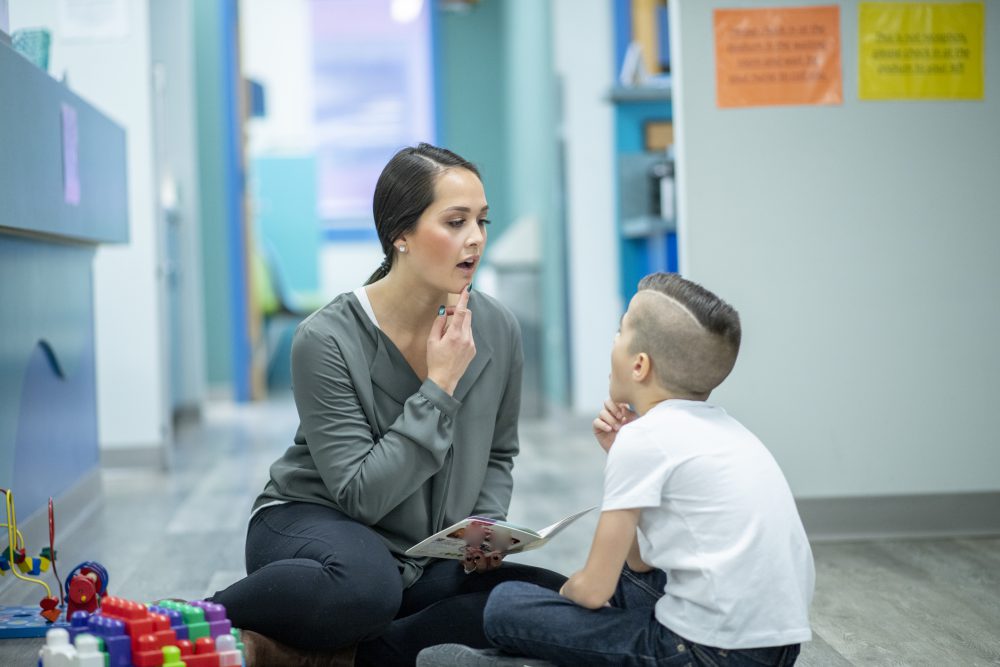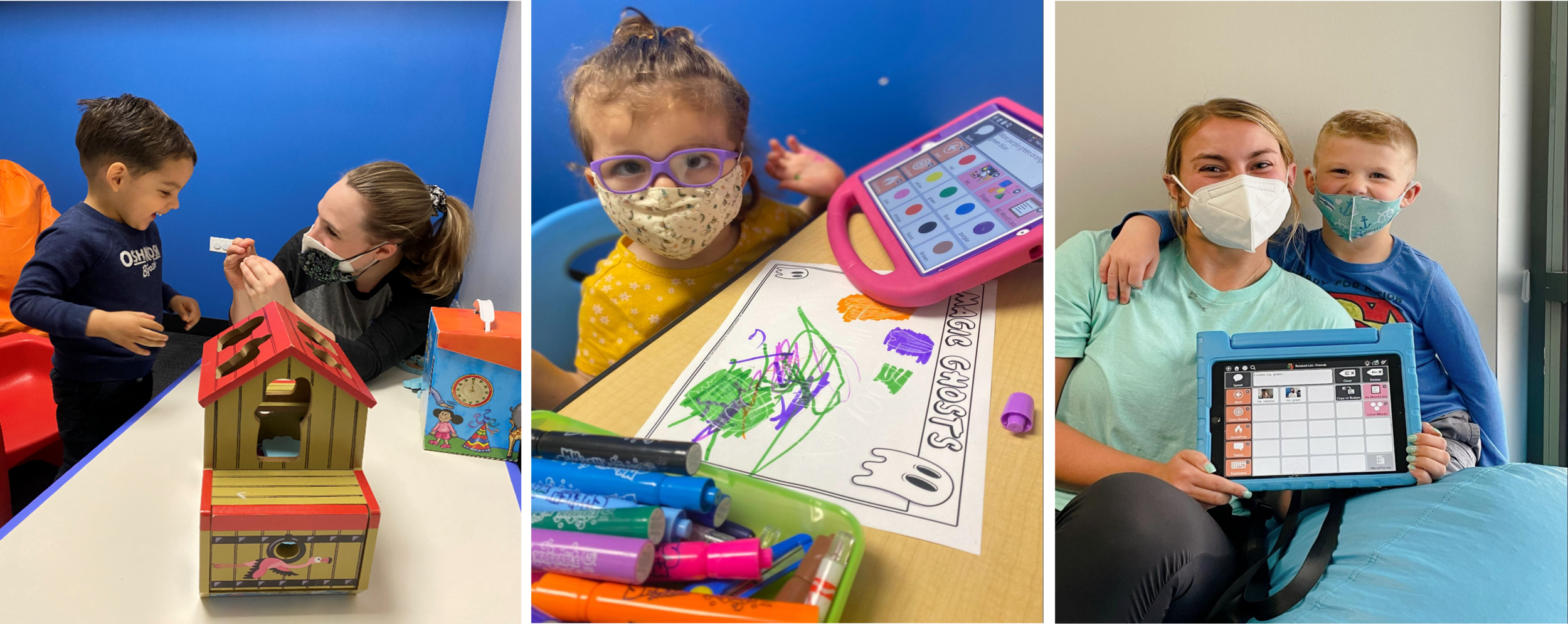Understand How a Speech Pathologist Can Assist with Swallowing Issues
Understand How a Speech Pathologist Can Assist with Swallowing Issues
Blog Article
Just How a Speech Pathologist Can Assist Improve Interaction Abilities
Effective interaction is a cornerstone of specialist and personal success, yet lots of people encounter difficulties that hinder their ability to share themselves clearly. A speech pathologist is outfitted to deal with these barriers with targeted analysis and intervention methods tailored to each person's needs. By utilizing evidence-based therapeutic methods, they not just work to enhance speech and language conditions however additionally improve overall communicative skills. Comprehending the diverse function of a speech pathologist reveals just how their competence can change lives, inviting a closer exam of the details approaches and outcomes connected with their method.
Recognizing Interaction Problems
Comprehending communication conditions is vital for acknowledging exactly how they affect people' ability to share themselves and engage with others. Interaction problems incorporate a large range of difficulties that impact speech, language, and social communication, typically impeding efficient interaction. These problems can occur from different elements, including neurological conditions, developmental hold-ups, physical problems, or emotional problems.
Speech problems might materialize as troubles in voice, fluency, or articulation manufacturing, affecting exactly how words are obvious or talked. Language problems, on the various other hand, entail difficulties in understanding or utilizing language, which can restrain both verbal and non-verbal interaction. Social communication problems are defined by troubles in the practical facets of interaction, such as taking kip down discussion or understanding social cues.
The effects of interaction conditions are extensive, impacting not just the person's capability to convey feelings and ideas yet also their social connections, educational chances, and total top quality of life. Awareness of these disorders can promote empathy and assistance, motivating reliable methods for interaction and interaction. Recognizing the complexities of communication disorders is an essential step towards promoting inclusivity and dealing with the needs of those affected.
Role of a Speech Pathologist
Speech pathologists frequently play a crucial function in detecting and dealing with interaction problems, utilizing an array of evidence-based techniques customized per person's demands. These specialists function with people throughout the life-span, from children with speech delays to adults recovering from strokes or distressing mind injuries. Their experience encompasses a range of interaction concerns, consisting of articulation, fluency, language, and voice disorders.
In therapeutic setups, speech pathologists make use of structured interventions created to improve communication abilities. They may apply methods such as speech exercises, language games, and social interaction training to help with enhancements in responsive and meaningful language capabilities. Speech Pathologist. Additionally, they inform clients and their families concerning effective interaction strategies and adaptive techniques to navigate everyday communications
Beyond straight therapy, speech pathologists team up with various other health care specialists, caretakers, and educators to guarantee a thorough approach to therapy. They advocate for clients by giving sources and assistance, enabling people to attain their communication goals and enhance their general lifestyle. As experts in the field, speech pathologists are essential in promoting efficient communication, promoting freedom, and enhancing social participation for those with communication challenges.
Analysis and Diagnosis Process
The assessment and diagnosis process conducted by speech pathologists commonly involves an extensive examination to recognize communication conditions accurately. This procedure starts with a comprehensive medical history, where the medical professional gathers essential information regarding the individual's clinical, educational, and developmental history. Understanding the context of the individual's interaction problems is vital for an accurate diagnosis.
Adhering to the case history, speech pathologists make use of informal analyses and standard examinations to evaluate various aspects of interaction, consisting of speech noise production, language understanding, expressive language, and social interaction skills. These analyses are tailored to the individual's age and particular issues, providing important data for analysis.
Observation is also a crucial component of the analysis procedure, as it permits the medical professional to see direct how the private interacts in natural settings. Furthermore, interviews with relative and educators can provide understanding into the individual's communication obstacles throughout different atmospheres.
Once the assessment is total, the speech pathologist manufactures the searchings for to identify a medical diagnosis and recommend proper treatments. This comprehensive analysis procedure makes sure that people receive targeted support tailored to their one-of-a-kind interaction needs, laying the foundation for effective restorative strategies.
Therapeutic Methods and Methods
Many healing strategies and techniques are employed by speech pathologists to attend to a range of communication problems effectively. One extensively made use of technique is expression therapy, which focuses on remedying speech appears via rep and visual cues. This method is particularly useful for individuals with speech audio problems.
One more effective method is language intervention, which boosts both expressive and responsive language skills. This may involve interactive tasks that promote vocabulary growth, syntax understanding, and conversational skills. Furthermore, speech pathologists typically utilize social skills training to enhance practical language abilities, making it possible for individuals to navigate social interactions more check that successfully.
Fluency shaping and stuttering modification methods are particularly developed to aid those experiencing fluency conditions. These methods assist clients create smoother speech patterns and take care of the psychological and physical components of stuttering.
In addition, augmentative and alternative interaction (AAC) systems are employed for individuals with severe communication disabilities. These systems, which can include gestures, icons, or electronic tools, offer crucial support for effective communication.
Advantages of Speech Therapy

In addition, speech therapy can aid in developing essential listening and understanding skills, fostering far better interaction in conversations. Individuals with cognitive-communication problems can additionally profit, as therapy focuses on strengthening memory and problem-solving capabilities, essential for reliable communication.
Another essential aspect is the emotional support offered during treatment sessions. Speech pathologists create a safe setting, encouraging clients to get over stress and anxiety and frustration pertaining to their interaction issues. This assistance can bring about enhanced self-worth and overall psychological wellness.
Moreover, very early intervention with speech treatment can protect against additional problems, guaranteeing that individuals reach their complete communicative potential. In general, the advantages of speech treatment extend past simple speech renovation, favorably affecting different measurements of life for those affected by communication problems.
Conclusion
In recap, speech pathologists play an essential duty in addressing communication disorders via evaluation, diagnosis, official website and customized therapeutic interventions. By utilizing evidence-based strategies, these experts boost individuals' speech and language capacities, cultivating enhanced clearness, fluency, and social interaction skills. The advantages of early treatment highlight the relevance of seeking aid from speech pathologists, as their experience can like it substantially boost communicative capacity, inevitably bring about higher success in both expert and individual rounds.

Speech pathologists often play an important role in identifying and treating communication conditions, using a variety of evidence-based strategies customized to each individual's demands. As experts in the area, speech pathologists are necessary in promoting effective communication, advertising independence, and improving social involvement for those with interaction challenges.

Report this page